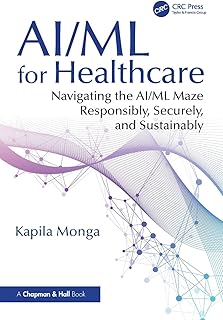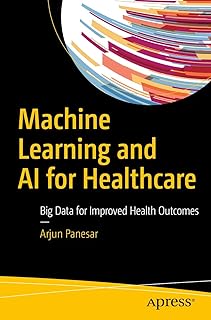Artificial Intelligence (AI) is revolutionizing healthcare and medical education, offering a wide array of capabilities. From enhancing knowledge acquisition and clinical reasoning to improving diagnostic precision and administrative workflows, AI is transforming how medical professionals engage with information and develop their clinical skills. The healthcare sector has increasingly embraced AI for various clinical applications, leading to a growing demand for AI literacy among future healthcare professionals. Medical schools and training programs globally are adapting their curricula to incorporate AI competencies alongside ethical considerations relevant to AI in medicine.
Despite the growing interest and research in AI education within medical training, challenges persist. Many institutions lack comprehensive curricula, validated teaching methods, and interdisciplinary collaboration. Questions arise about the most effective approaches for teaching AI in medicine, ensuring accessibility and equity in AI training, and addressing ethical awareness in line with technological advancements. To tackle these challenges and fully utilize AI’s potential in medical education, structured frameworks are needed. Kern’s Six-Step Approach to Curriculum Development provides a systematic pathway for integrating AI thoughtfully into medical education.
This narrative review delves into existing literature on AI in medical education, exploring AI applications, evaluating educational models, gathering perspectives from learners and faculty, identifying barriers to implementation, and proposing strategies for future integration. The review adopts a hybrid approach, combining elements of narrative and systematic reviews. A structured literature search was conducted across multiple databases following PRISMA 2020 guidelines to ensure methodological transparency. The review emphasizes the need for well-structured AI curricula, targeted faculty development, interdisciplinary collaboration, and ethically sound practices to promote sustainable and equitable adoption of AI in medical education.
The review highlights the diverse applications of AI in medical education, including admissions, diagnostics, assessments, clinical simulations, and predictive analytics. Innovative curricular designs have been proposed, advocating for modular approaches that incorporate machine learning, ethics, and governance. Educational interventions focusing on AI literacy have shown improvements in knowledge acquisition, diagnostic reasoning, and ethical awareness. Stakeholder perceptions, ethical and regulatory challenges, and barriers to implementation have also been identified as key areas of concern in integrating AI into medical education.
The review underscores the importance of addressing ethical issues, engaging stakeholders, overcoming implementation barriers, and enhancing faculty expertise in AI principles and applications. As AI continues to reshape medical education, a phased integration strategy tailored to evolving demands is essential. By equipping future clinicians with the necessary AI competencies and ethical understanding, medical education can adapt to the changing landscape of healthcare delivery driven by artificial intelligence.
📰 Related Articles
- Michael Bonfils Reveals AI’s Impact on Search Marketing Strategies
- VAR Impact on Sports Betting Strategies: Expert Recommendations
- US Study Visa Delays: Challenges & Strategies for International Students
- Trump’s Foreign Student Policies Impact Australian Education Landscape
- Trump Tax Bill Raises Concerns Over Education Inequality Impact






